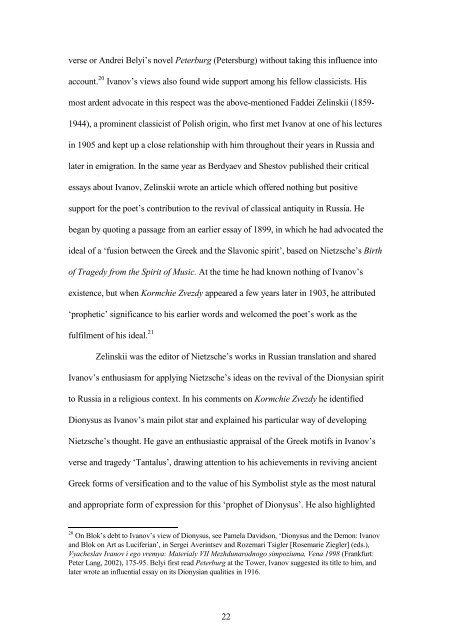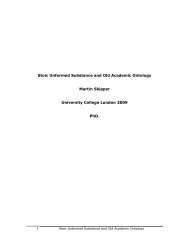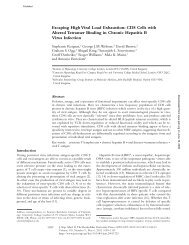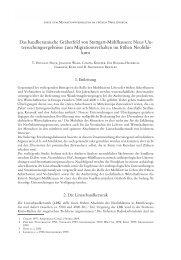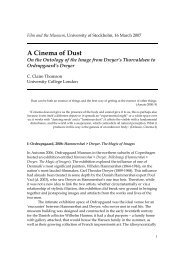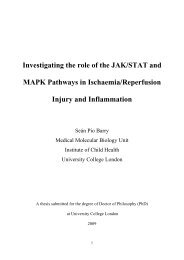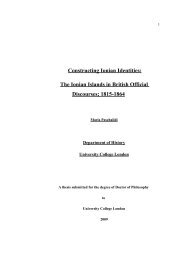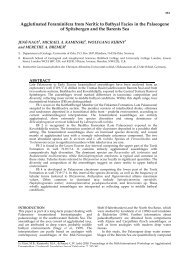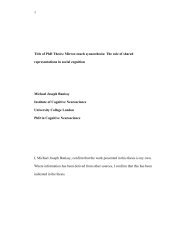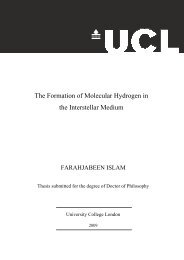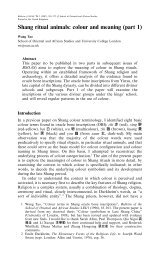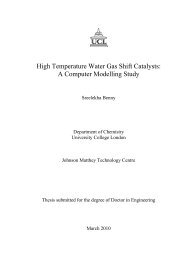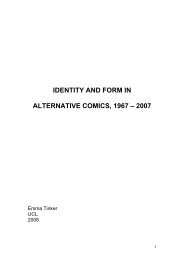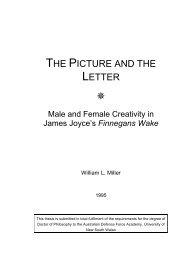Vyacheslav Ivanov and C.M. Bowra: a ... - UCL Discovery
Vyacheslav Ivanov and C.M. Bowra: a ... - UCL Discovery
Vyacheslav Ivanov and C.M. Bowra: a ... - UCL Discovery
You also want an ePaper? Increase the reach of your titles
YUMPU automatically turns print PDFs into web optimized ePapers that Google loves.
verse or Andrei Belyi’s novel Peterburg (Petersburg) without taking this influence into<br />
account. 20 <strong>Ivanov</strong>’s views also found wide support among his fellow classicists. His<br />
most ardent advocate in this respect was the above-mentioned Faddei Zelinskii (1859-<br />
1944), a prominent classicist of Polish origin, who first met <strong>Ivanov</strong> at one of his lectures<br />
in 1905 <strong>and</strong> kept up a close relationship with him throughout their years in Russia <strong>and</strong><br />
later in emigration. In the same year as Berdyaev <strong>and</strong> Shestov published their critical<br />
essays about <strong>Ivanov</strong>, Zelinskii wrote an article which offered nothing but positive<br />
support for the poet’s contribution to the revival of classical antiquity in Russia. He<br />
began by quoting a passage from an earlier essay of 1899, in which he had advocated the<br />
ideal of a ‘fusion between the Greek <strong>and</strong> the Slavonic spirit’, based on Nietzsche’s Birth<br />
of Tragedy from the Spirit of Music. At the time he had known nothing of <strong>Ivanov</strong>’s<br />
existence, but when Kormchie Zvezdy appeared a few years later in 1903, he attributed<br />
‘prophetic’ significance to his earlier words <strong>and</strong> welcomed the poet’s work as the<br />
fulfilment of his ideal. 21<br />
Zelinskii was the editor of Nietzsche’s works in Russian translation <strong>and</strong> shared<br />
<strong>Ivanov</strong>’s enthusiasm for applying Nietzsche’s ideas on the revival of the Dionysian spirit<br />
to Russia in a religious context. In his comments on Kormchie Zvezdy he identified<br />
Dionysus as <strong>Ivanov</strong>’s main pilot star <strong>and</strong> explained his particular way of developing<br />
Nietzsche’s thought. He gave an enthusiastic appraisal of the Greek motifs in <strong>Ivanov</strong>’s<br />
verse <strong>and</strong> tragedy ‘Tantalus’, drawing attention to his achievements in reviving ancient<br />
Greek forms of versification <strong>and</strong> to the value of his Symbolist style as the most natural<br />
<strong>and</strong> appropriate form of expression for this ‘prophet of Dionysus’. He also highlighted<br />
20 On Blok’s debt to <strong>Ivanov</strong>’s view of Dionysus, see Pamela Davidson, ‘Dionysus <strong>and</strong> the Demon: <strong>Ivanov</strong><br />
<strong>and</strong> Blok on Art as Luciferian’, in Sergei Averintsev <strong>and</strong> Rozemari Tsigler [Rosemarie Ziegler] (eds.),<br />
<strong>Vyacheslav</strong> <strong>Ivanov</strong> i ego vremya: Materialy VII Mezhdunarodnogo simpoziuma, Vena 1998 (Frankfurt:<br />
Peter Lang, 2002), 175-95. Belyi first read Peterburg at the Tower, <strong>Ivanov</strong> suggested its title to him, <strong>and</strong><br />
later wrote an influential essay on its Dionysian qualities in 1916.<br />
22


